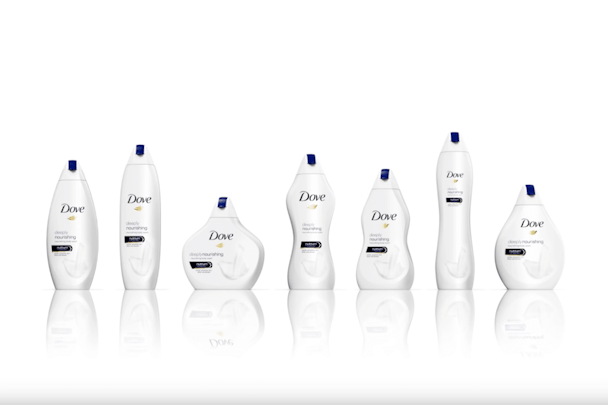Awards bias for short-term work causing 'creative effectiveness crisis', IPA warns
There is a "crisis in creative effectiveness" warns the IPA upon the release of its report into the effectiveness of short-term campaigns. It raised a concern that awards shows like Cannes Lions are increasingly inspiring bad practise.

Dove's real beauty campaign cited as a successful long-term campaign
The report indicated that creatively awarded campaigns are now less effective than they have ever been in the entire 24-year run of data from the advertising body's banks of case studies and research. This, it claimed was due to increasing wins from short-term activations.
The report notes a dramatic rise in awarded short-term campaigns, from an average of 10% surveyed in 2002 to 25% in 2018. It said that these shorter runs and the strategic and media trends it inspires have promoted a “collapse in effectiveness”.
The report claimed that short-term creatively awarded campaigns are around 50% less effective than long-term awarded campaigns. Further damning awards, it added that short-term creatively awarded case studies turn out to be almost 25% less effective than non-awarded campaigns.
Short-term results are increasingly swaying judges annually, but this is seeing declining average effectiveness levels amongst awarded campaigns, claimed the IPA.
The theory was that short-term creatively awarded campaigns on average allocate 2.5 times more of their budget to online media than long-term work.
“Perhaps judges just prefer digitally focused campaigns or data-driven creativity?”
The tendency "more recently has shown signs of levelling off, thanks in large part to effectiveness judges trying to discourage the trend to short-term cases." However, it was warned that when looking at broad media-expenditure patterns, there is "not yet any evidence that this trend is becoming more widespread".
The IPA urged long-term work and goals. “Creativity delivers very little of its full potential over short time frame,” as a result, short-terminism is hamstringing a campaign’s ability to resonate.
There are increasing campaigns, even longer-running ones, that are being geared to short-term sales effects rather than long-term growth. The report warned: "This switch is changing the very nature of the type of advertising we are generally exposed to: instead of emotionally engaging human stories that seek to charm and captivate, we are seeing more didactic, literal presentations that seek to prompt us into action.”
Across all IPA studies for each year, brand building is down from 85% in 2002 to 62% in 2018. The focus has seen an increasing need for short-term sales bursts and CTAs, no doubt prompted by the rise of digital spend.
As for campaigns that best utilise longevity to build brand fame and achieve long-term objectives, the IPA urges a look at Dove’s Real Beauty campaign, that became a platform and now more of a cornerstone of the brand. It claims that with an ROI of over 400%, “the campaign proves that brand purpose, if communicated creatively, can be a force for success”.
Just today, Unilever's new chief executive officer Alan Jope urged brands to stop "woke washing" and said that brands with no purpose will have no place in its stable.

